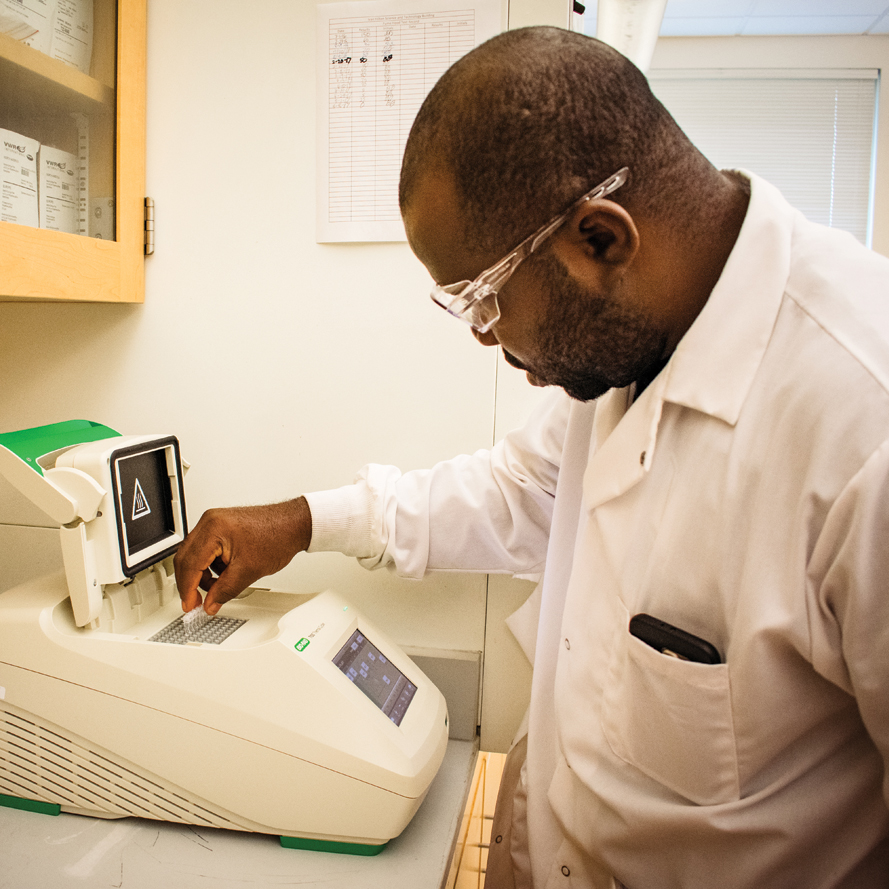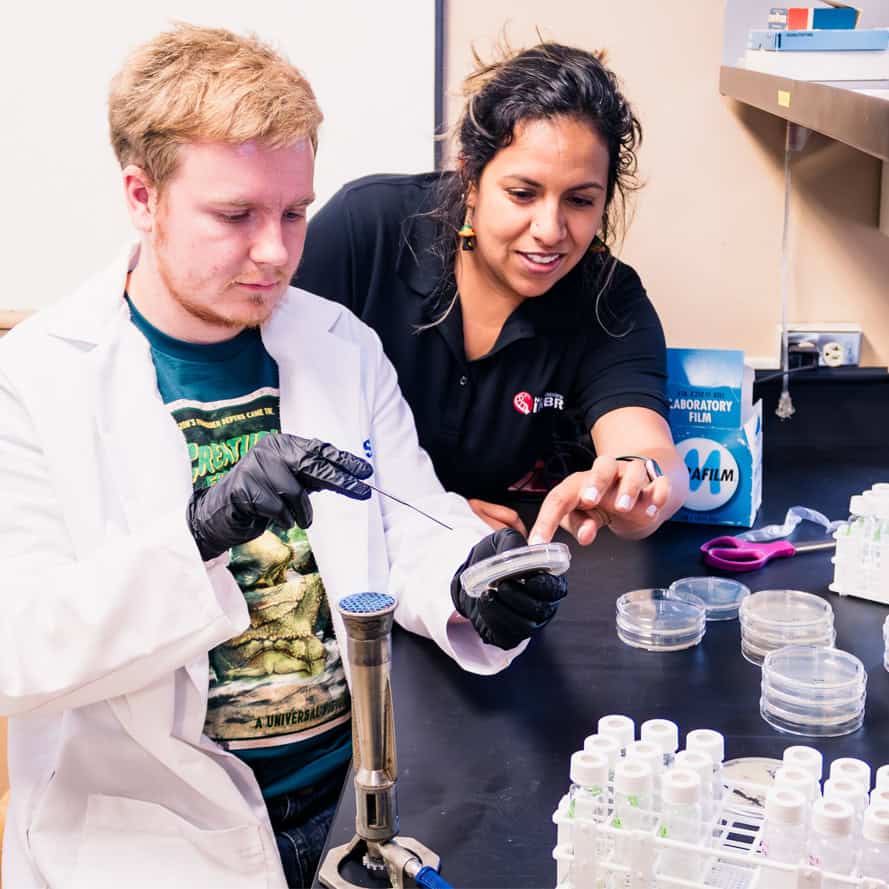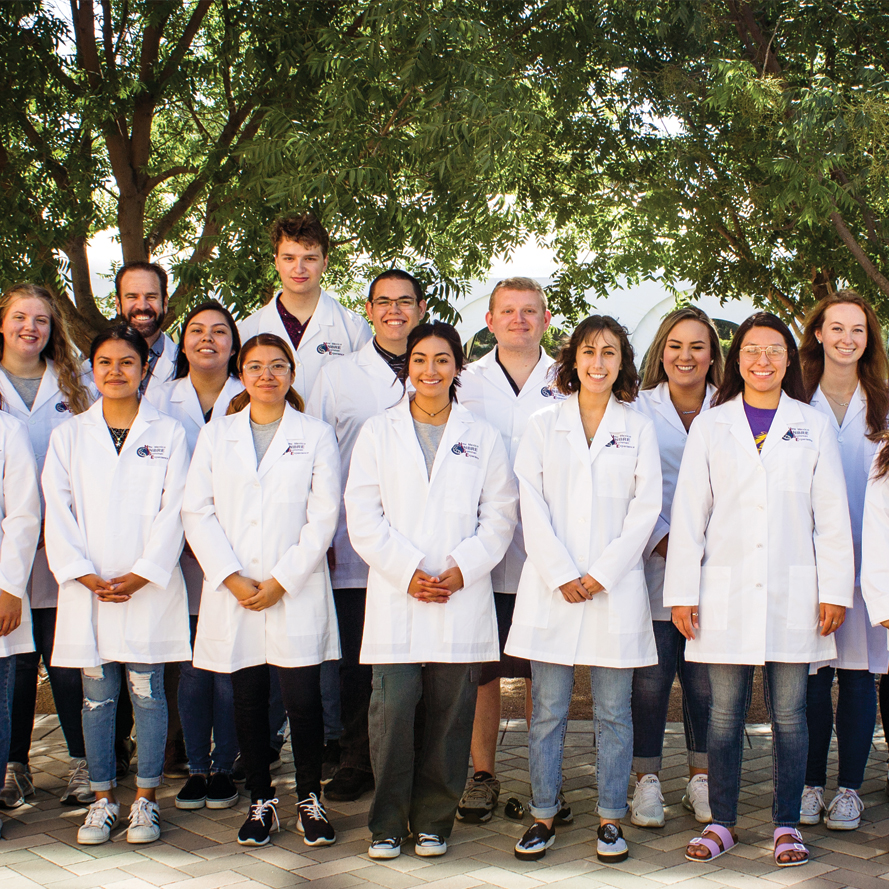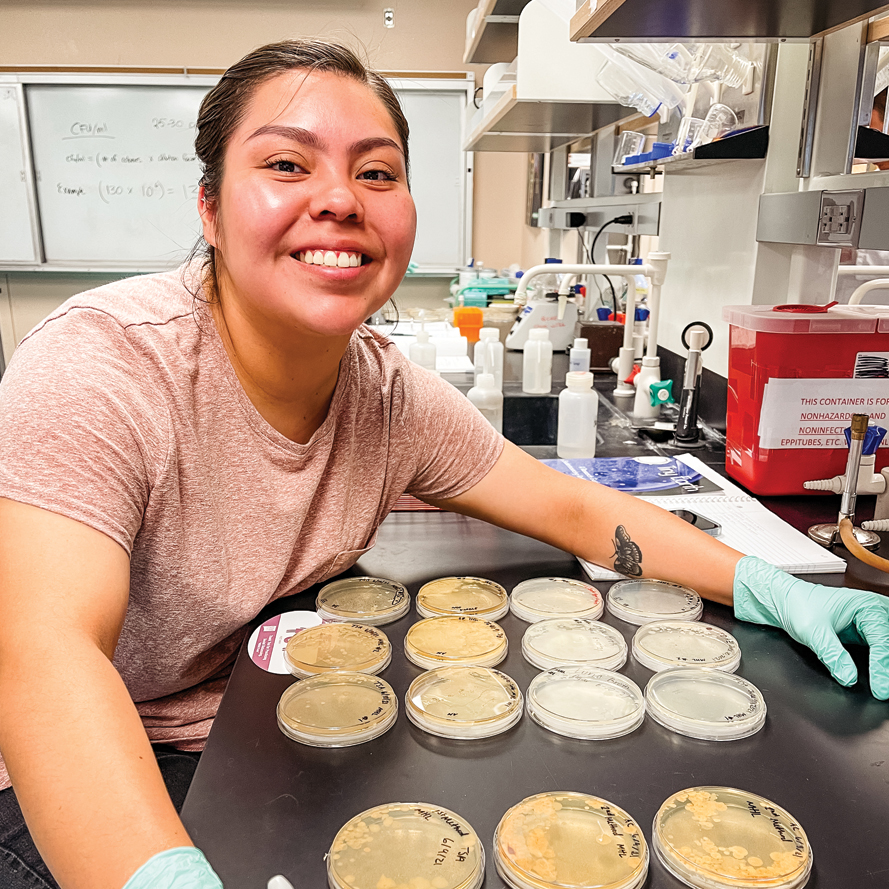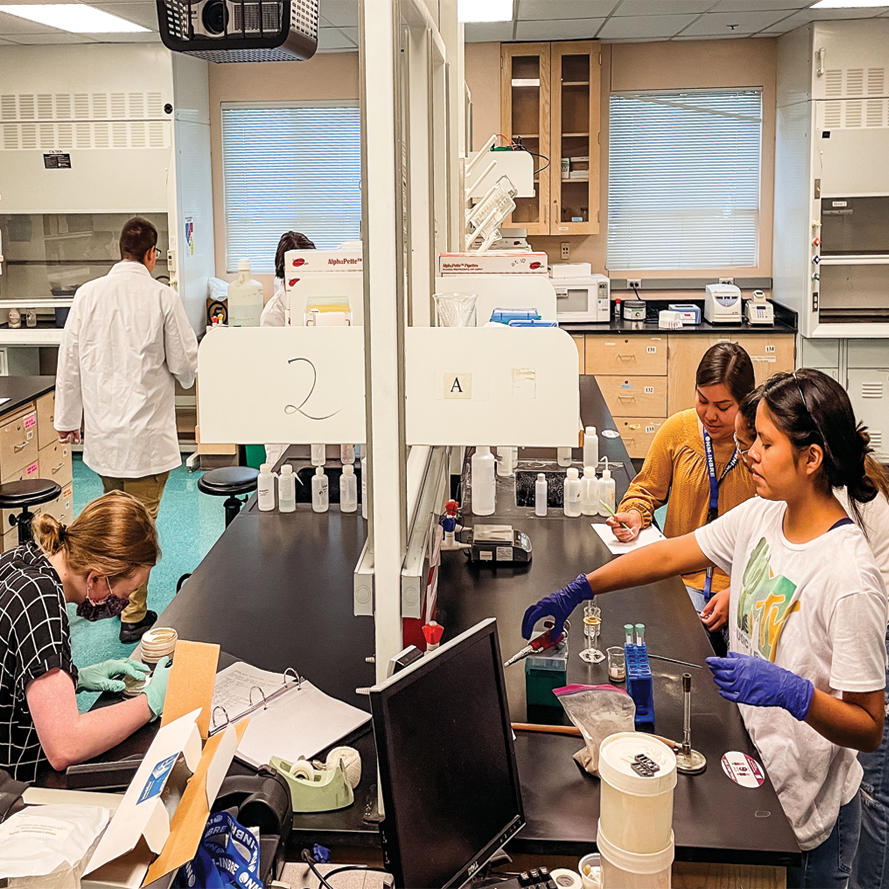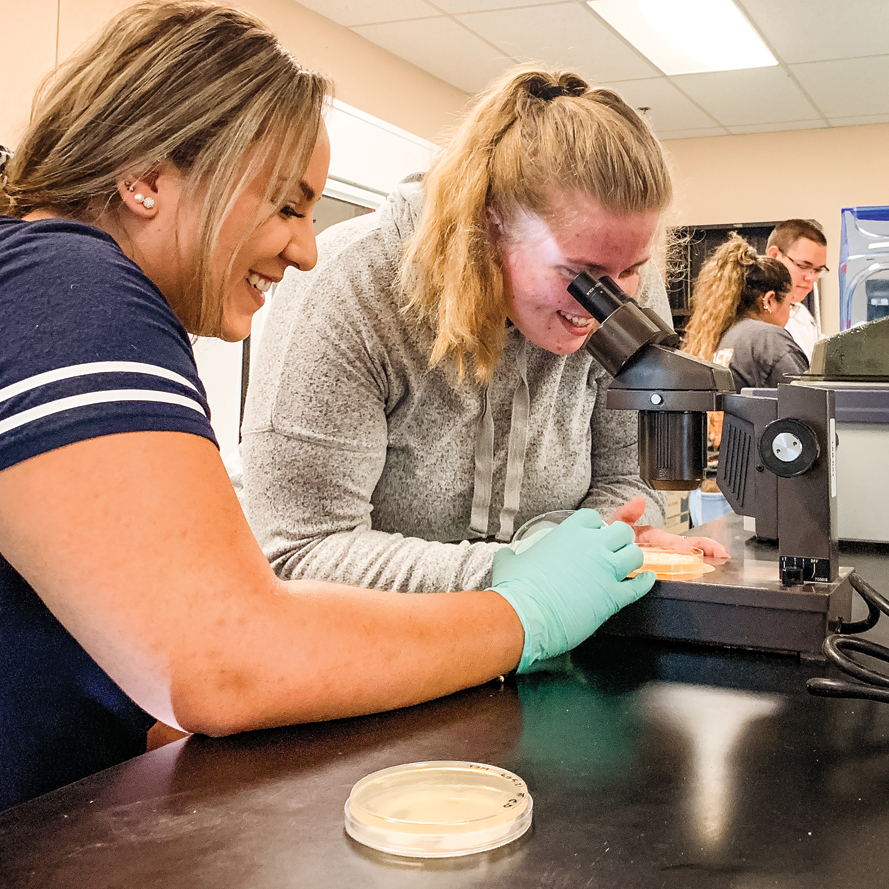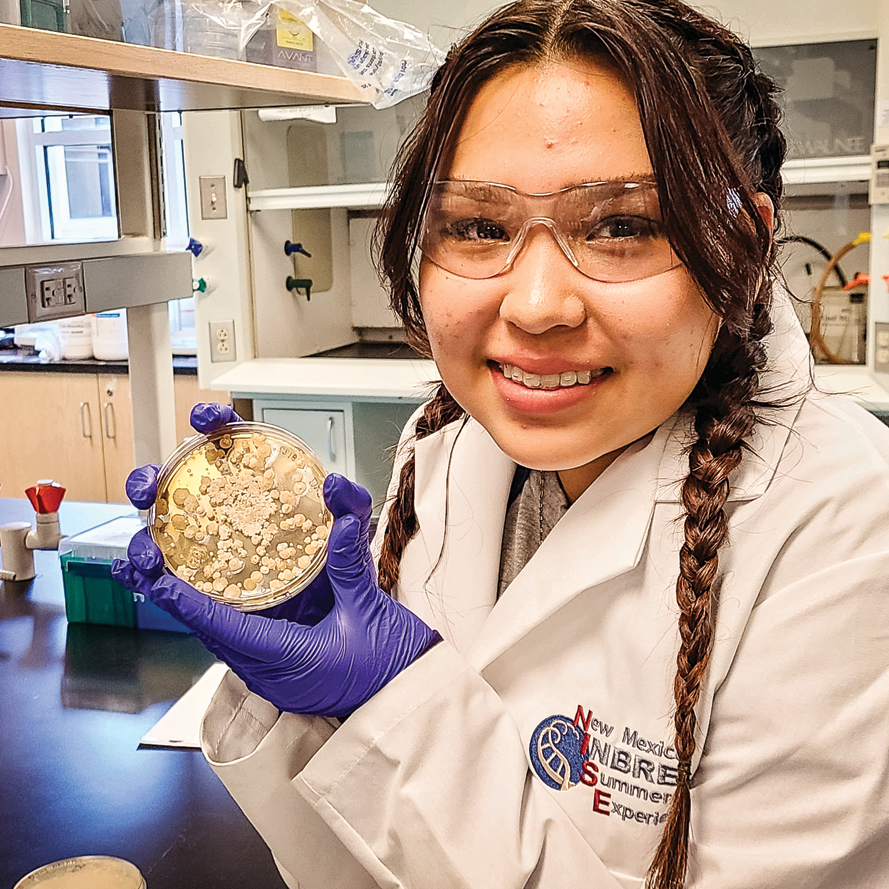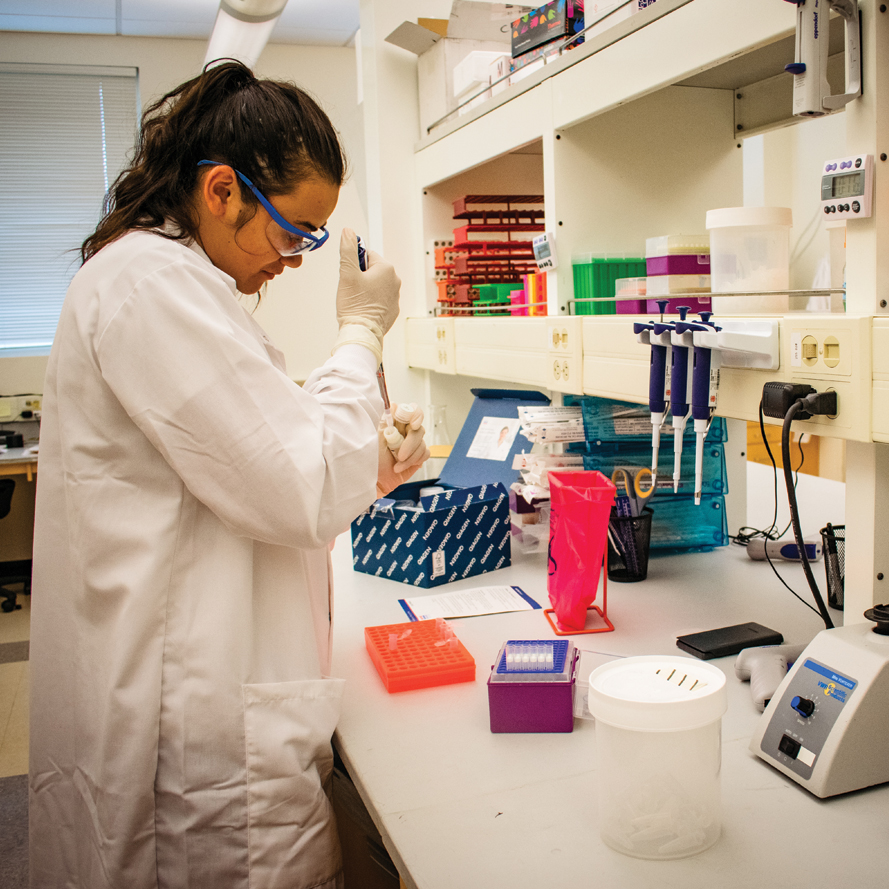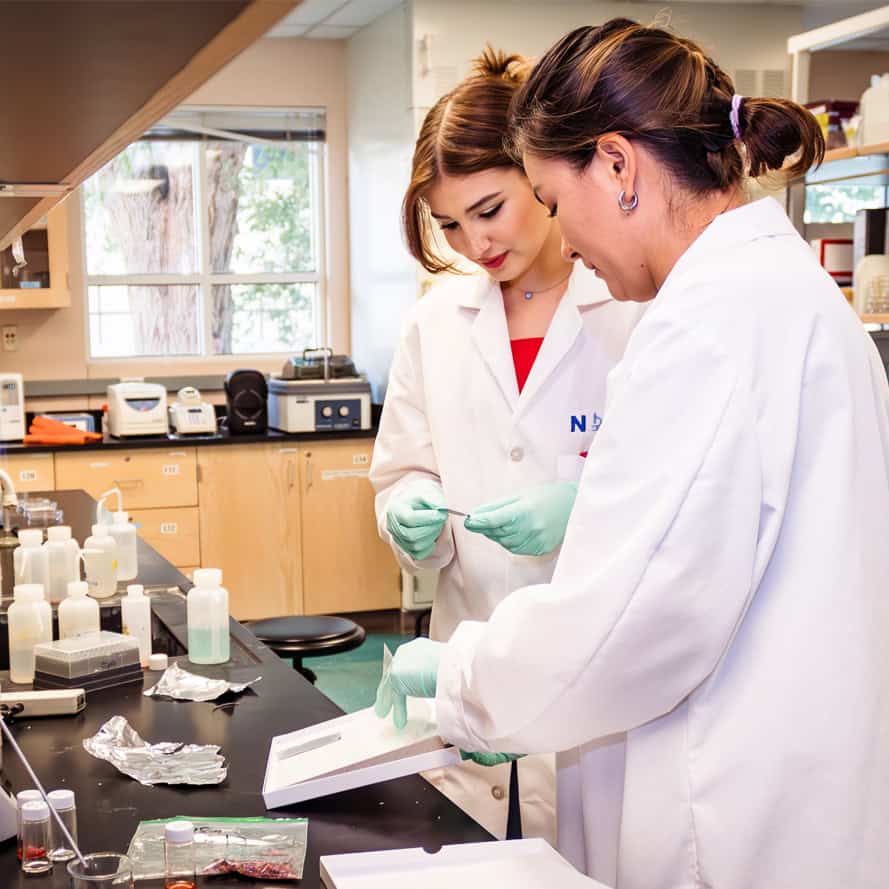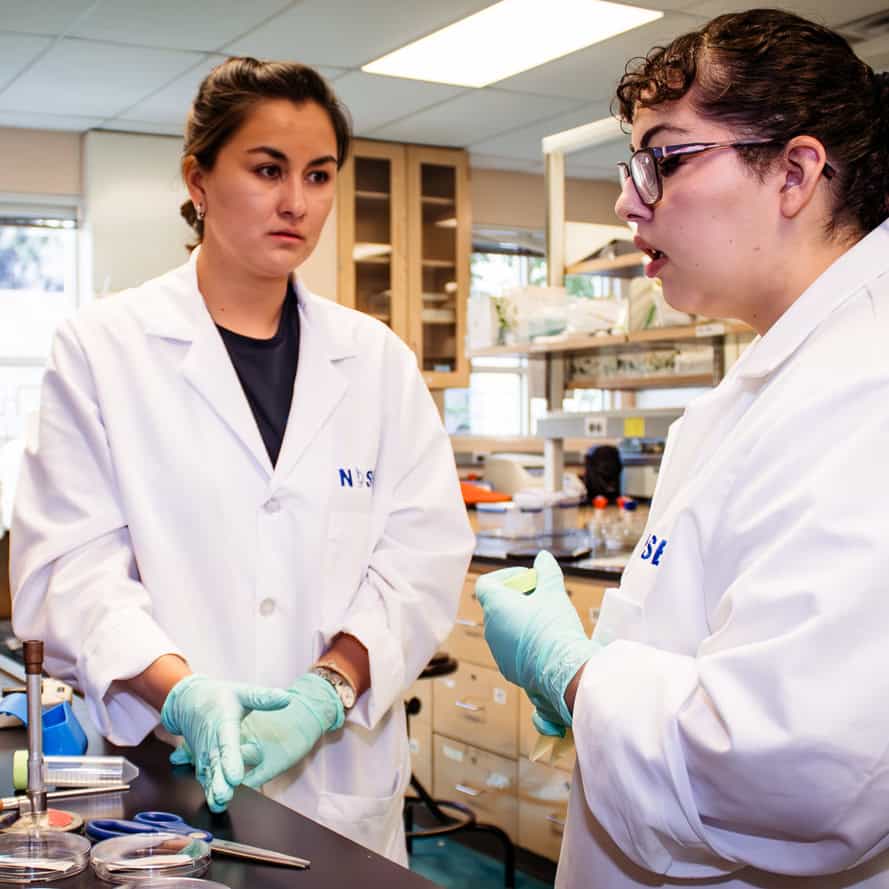
NM-INBRE At A Glance
New Mexico INBRE champions biomedical and community-based research excellence in the state of New Mexico through the development of innovative, supportive and sustainable research environments for faculty and students, community engaging health initiatives, while building a network of lead scientists and educators at the state, regional and national level.
RAIN
A collaborative effort of the Alaska, Hawaii, Idaho, Montana, Nevada, New Mexico, and Wyoming INBRE programs. That expands resource capabilities to address overlapping science questions specific to each state’s thematic umbrella.
Developmental Research Project Program
The programs mission is to create supportive research and training environments, facilitate communications & collaborations among participants, and provide access to core facilites
NISE
New Mexico INBRE Student Experience also known as NISE is an 8 week research experience that features four diffrent programs for students to apply to.
New Mexico IDeA Networks of Biomedical Research (INBRE) is housed at New Mexico State University, and collaborates with more than 10 partner institutions across the state. One of the goals of the funding is to continue building a nationwide, multi-disciplinary research network that will enhance the biomedical research base with lead scientists, educators and students.
Important Dates
Nov 21st- Nov 23rd | Annual Symposium
Nov 1st | Earliest DRPP Start Date
NM INBRE EVENTS
Lets Get Social
Follow us on social media
Our Partners

HAVE SOME NEWS TO SHARE?
Explore and elevate your scientific achievements by sharing your recent science news to the NM-INBRE newsletter. We invite you to be a part of our collaborative community, where breakthroughs and discoveries are celebrated. By sharing your news, you open doors to collaboration, networking, and visibility, contributing to the collective progress in our shared scientific journey. Join us in building a stronger scientific community in New Mexico, where your science matters and plays a crucial role in shaping the future of biomedical research.
NM-INBRE 1175 N. Horseshoe Dr. Las Cruces, NM 88003 nminbre@nmsu.edu 575-646-2783


